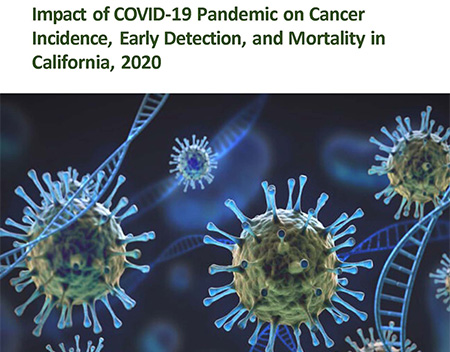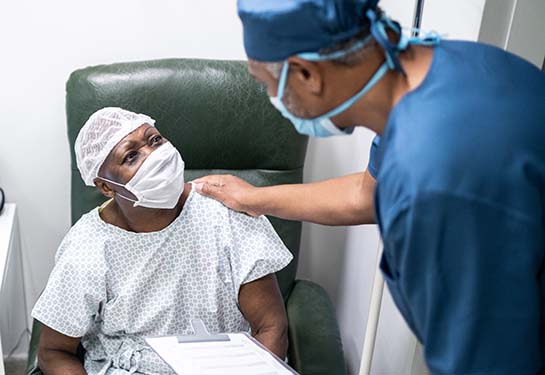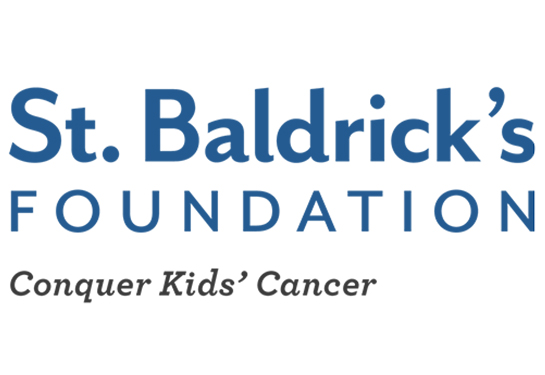The missed cancer diagnoses: Impacts from COVID-19
New cancer center report shows the toll from delayed diagnoses caused by the pandemic
The COVID-19 pandemic prompted nationwide shutdowns. California was the first U.S. state to enact a shelter-in-place order in March 2020. By the next month, the Centers for Disease Control and Prevention and the Centers for Medicare and Medicaid Services recommended that patients delay routine cancer screenings and other non-essential medical appointments. This led to about 40% of U.S. adults avoiding medical care, including screenings such as colonoscopies, mammograms, and other diagnostic measures.
In a new report, researchers at UC Davis Comprehensive Cancer Center found significantly fewer cancers were diagnosed in 2020 for 17 of 21 common cancer types. The report was produced by the California Cancer Reporting and Epidemiologic Surveillance (CalCARES) program within the cancer center.
The cancer center is urging Californians and health care providers to get their routine screenings back on track.
Almost 13% of expected screening-detectable cancer cases went undiagnosed

The UC Davis researchers used cancer incident cases among California residents between 2005 and 2020 from the California Cancer Registry. They compared reported 2020 cancer incidence rates with American Cancer Society estimates of expected new invasive cancers in California for 21 common cancers. The cancer center partners with the California Department of Public Health to manage day-to-day operation of the cancer registry.
There were many cancers with significantly lower than expected diagnoses in 2020. These included oral cavity and pharynx, thyroid, liver and bile duct, cervical, lung and bronchial, breast, stomach, uterine, ovary, bladder, kidney, colorectal, and pancreatic cancers, as well as melanoma, leukemia, myeloma, and non-Hodgkin lymphoma.
Strikingly, the research team estimated that only 55% of the expected number of oral cavity and pharynx cancers, and only 75% of the expected number of thyroid cancers were diagnosed in California in 2020. In all, 12.9% fewer screening-detectable cancers were diagnosed in 2020 than 2019.
Importantly, there were 25-50% fewer than expected early-stage diagnoses made among all screening-detectable cancer sites, including breast, cervical, colorectal, melanoma and lung, as well as among specific population subgroups.
Low-income communities impacted even more by COVID-19 pandemic
Because of the undue burdens that poverty and marginalization place on Californians seeking routine medical care, the report also considered socioeconomic status measures to determine how these variables affected cancer detection.
“Across screening-detectable cancers we found that missed early diagnosis was most prevalent among the lowest socioeconomic status neighborhoods and historically marginalized communities, including Hispanic/Latino, African Americans, American Indians and people who are older than the screening recommendations,” said Julianne Cooley, lead author of the study.
The report urges public action to identify vulnerable populations and increase efforts to encourage cancer screening for these people. This includes the elderly, historically marginalized races and ethnicities, and people living in low socioeconomic status neighborhoods.
Because so many people with cancer went without in-person health care and screenings, they’re likely to be diagnosed at a later stage when their prognosis is worse.”—Julianne Cooley, UC Davis researcher
Significant delays in screening
Early cancer detection can save lives. When cancer is found and treated at a localized stage, before it spreads or metastasizes throughout the body, treatment is more likely to be successful.
“Because so many people with cancer went without in-person health care and screenings, they’re likely to be diagnosed at a later stage when their prognosis is worse,” Cooley said.
Other UC Davis authors include Rita M. Villazana, Brenda M. Hofer, Arti Parikh-Patel, Theresa H.M. Keegan, and Theodore Wun.
UC Davis Comprehensive Cancer Center
UC Davis Comprehensive Cancer Center is the only National Cancer Institute-designated center serving the Central Valley and inland Northern California, a region of more than 6 million people. Its specialists provide compassionate, comprehensive care for more than 100,000 adults and children every year and access to more than 200 active clinical trials at any given time. Its innovative research program engages more than 240 scientists at UC Davis who work collaboratively to advance discovery of new tools to diagnose and treat cancer. Patients have access to leading-edge care, including immunotherapy and other targeted treatments. Its Office of Community Outreach and Engagement addresses disparities in cancer outcomes across diverse populations, and the cancer center provides comprehensive education and workforce development programs for the next generation of clinicians and scientists. For more information, visit cancer.ucdavis.edu.





